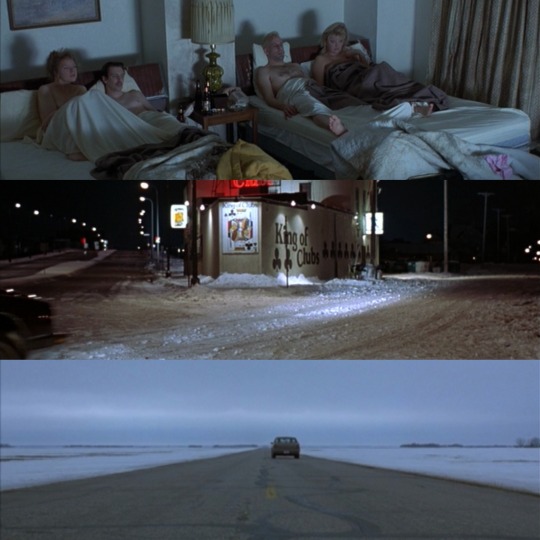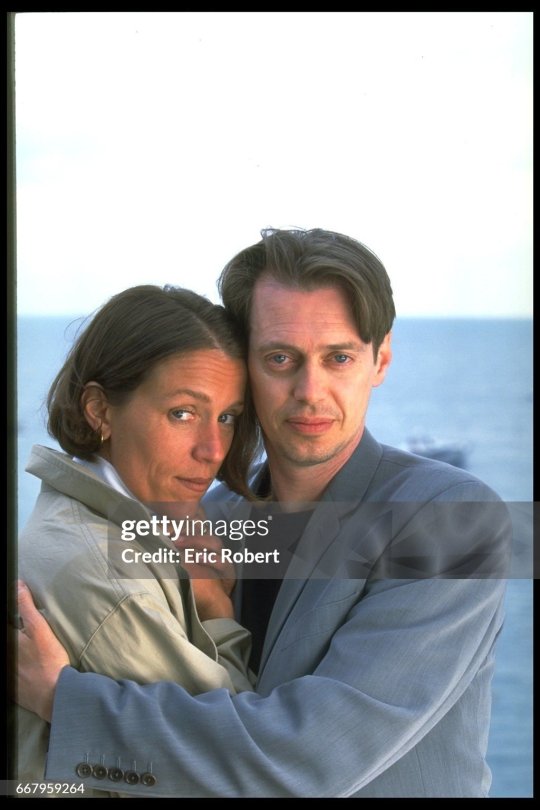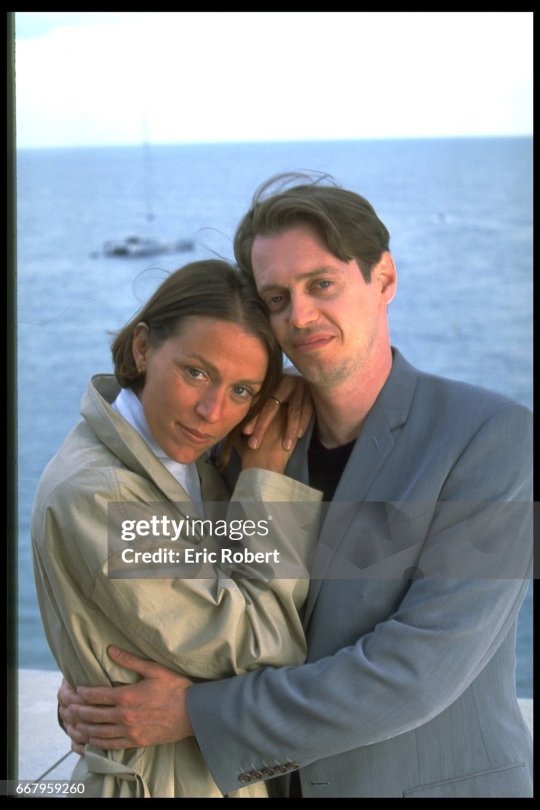#1996 Cannes Film Festival
Explore tagged Tumblr posts
Text

Fargo (1996, Coen brothers)
16/05/2024
#fargo#film#1996#coen brothers#1996 Cannes Film Festival#69th Academy Awards#Academy Award for Best Original Screenplay#Academy Award for Best Actress#frances mcdormand#william h. macy#steve buscemi#peter stormare#2006#national film registry#library of congress#united states#2014#Tagline#minnesota#1987#oldsmobile#minneapolis#Indigenous peoples of the Americas#Fargo North Dakota#north dakota#Contract killing#Brainerd Minnesota#Moose Lake Minnesota#woodchipper#motel
18 notes
·
View notes
Text

this what the kids call cunty?
#daniel craig#photography#1990s#90s#90s aesthetic#90s fashion#cannes film festival#1996#actors#beautiful men
83 notes
·
View notes
Text

Eva Herzigova at Cannes Film Festival (1996)
45 notes
·
View notes
Text


Steve Buscemi and Frances McDormand at Cannes Film Festival, 1996
#steve buscemi#frances mcdormand#fargo#fargo movie#coen brothers#joel coen#reservoir dogs#fargo 1996#cannes#cannes film festival#cannes festival#palme d'or
18 notes
·
View notes
Text



Eva Herzigova at Cannes Film Festival 1996 by Helmut Newton
23 notes
·
View notes
Text

Naomi Campbell in Chanel Haute Couture - Fall 1996 77th annual Cannes Film Festival
#naomi campbell#chanel#cannes film festival#couture#supermodel#model#haute couture#pearls#karl lagerfeld#sequins#sparkle#gorgeous#90s aesthetic#90s style#vintage fashion#y2k aesthetic#1996#law roach#cannes#90s fashion#glamorous#flawless#queen#mother#90s chanel#✨
10 notes
·
View notes
Text

2 notes
·
View notes
Text
instagram
#naomi campbell#1996#2024#chanel spring 2014#Chanel spring 1996#chanel#cannes film festival#Nice#french riviera#Instagram
0 notes
Text
East Palace, West Palace in ep5 of Blue Canvas of Youthful Days
I have been punched in the solar plexus by Blue Canvas of Youthful Days episode 5. So much happens in that episode that is overwhelming, from Qi Lu setting up a Netflix-and-chill date with the clear intention of making a move, to his putting on the famous film East Palace, West Palace (1996), to Qi Lu hiding Qin Xiao in the closet, to Qi Lu's panic at his father realizing he's been lied to, to the devastatingly practiced way Teacher Liu steps to Qi Lu being abused and handles his father, to the way Qi Lu shuts down, to the way QIn Xiao keeps sending mixed signals and Qi Lu calls him on it directly. And nobody else in this episode let me rest either; Tan Fan trying to ask Teacher Liu to wait for him and Liu brushing him off AGAIN, and Turtle trying to call out
@lurkingshan was already more coherent than I can be right now about what happened in the episode in her post.
So instead I want to focus on some queer cinema history that this episode evoked by using East Palace, West Palace as the film that Qi Lu shows to QIn Xiao.
For those who don't know, EPWP is considered to be the first realistic depiction of a gay man in film by a mainland Chinese production. It is to my knowledge the first time a gay man says "I love you" to another man on screen. It was made before being gay was decriminalized in China (1997), and it was filmed by an independent production company and smuggled out of China to France in order to be finished and distributed. It ended up at the Cannes festival in 1997, but the director's passport was seized and he was placed under house arrest to prevent him from attending. Despite pressure to pull the film, it still aired that year. In 1998, the Film Law was passed to prevent anyone from making films outside of the studio system (and therefore censorship review), effectively preventing anything like EPWP from being made in the future.
The film is about a gay man who cruises in the notorious bathrooms in the parks on either side of Tiananmen Square getting harassed by police officers (a situation extremely familiar to the historical queer experience in Canada [where I'm from] as well) and playing what I'd describe as a psychological game with one of them; A Lan kisses the cop, runs, and then gets caught a second time, and uses the second police confession as an excuse to tell his life's story in the public record, all while pushing the police officer a little further into deviance. As far as I'm aware, this film has been banned in China since being made and never shown (please correct me if I'm wrong about that!).
This is hitting me hard because of the much more recent history of Blue Canvas of Youthful Days itself. As most of you know, but I'll capture here for posterity, episodes 1-4 of this show aired on iQIYI (a China-based app) on August 6, and within 24 hours they were pulled from the app with no information about the future episodes being shown. When I watched episode 5 today, after waiting for it for 3 months, I was immediately hit with a wave of anger that this gorgeous, emotionally moving and powerful episode had been held back from public consumption for months, for the same reasons that the film being shown within the episode had been withheld from viewing in its own country.
Censorship is such an ugly thing, it's hard to articulate but the emotions around it are so strong because we know, when they pull or refuse to show media that depicts our lives, it's because they don't want our lives to be real; they don't want us to exist. It's a very real threat. And to have this episode--which is all about an abused boy who is in very real danger but so bravely insisting that he shoot his shot and take his best chance at love and happiness anyway, using the iconic confession scene from one of the most famous banned films in Chinese queer cinema history to do it--to have this episode be the one that was prevented from airing......I am overwhelmed.
In the scenes they watch in episode 5, A Lan tries to prevent the officer from uncuffing him, and then the officer lets him go, but A Lan doesn't go far and comes back. He declares his love to the officer's face, and demands that his love be acknowledged and not dismissed. And the officer does not know what to do with it and reacts with violence, which is partially what A Lan has been angling at all along. The show really played with this by having all three of the couples in the show stymied by having their overtures dismissed this episode, but we almost didn't get to see it.
I'm so grateful this got distribution now, and on multiple platforms. Blue Canvas of Youthful Days is airing Saturdays and Sundays on GagaOOLala and Youtube (note, as per @thisonelikesaliens's excellent language posts, the subs on Gaga are much better), and on Mondays on Viki. I know there is an avalanche of content right now, but this show is so good and worked so hard to make it to us, please give it some love!
#blue canvas of youthful days#east palace west palace (1996)#typed so that i can stop thinking it#queer history
97 notes
·
View notes
Text


Francis Ford Coppola with his daughter Sofia Coppola at the Cannes Film Festival in 1996 // Francis Ford Coppola with his granddaughter Romy Mars at the Cannes Film Festival in 2024
79 notes
·
View notes
Text


James Spader photographed at 49eme Festival International du Film Cannes, 1996
99 notes
·
View notes
Text

Fargo (1996, Coen brothers)
12/02/2024
Fargo is a 1996 film written and directed by Coen brothers. Presented at the 49th Cannes Film Festival, where it won the award for best director, it also won two Oscars, for best original screenplay and for best leading actress, Frances McDormand. The other protagonists of the film are William H. Macy, Steve Buscemi and Peter Stormare.
In 2006 it was chosen to be preserved in the National Film Registry of the United States Library of Congress, an archive of films considered culturally, historically or aesthetically representative. In 2014 it inspired the production of the television series of the same name Fargo, for which the Coen brothers appear as co-executive producers.
Minnesota, winter of 1987. Jerry Lundegaard is a business-minded Oldsmobile salesman from Minneapolis, but with several financial problems. Thanks to the suggestion of the Indian mechanic Shep Proudfoot (who in the past has had some problems with the law), Jerry goes to a bar in Fargo, in neighboring North Dakota, to hire two hitmen, Gaear Grimsrud and Carl Showalter, to whom he promised a car and half of the ransom of 80 000 dollars.
Gaear and Carl, traveling with the hostage in the car provided by Jerry (secretly disappeared, without license plates, from the dealership), are stopped by a police patrol near Brainerd.
Marge decides to go to Minneapolis to meet Shep and also manages to talk to Jerry, who asks him if a car has disappeared from the dealership, but for the moment she doesn't get any information. Carl then buries most of the money near a back road, marking the spot with an ice scraper for recognition, and returns to Moose Lake, where Gaear remains with the hostage.
On the way home, Marge recognizes the offending car without license plates and, determined to take a look, discovers Gaear disposing of Carl's body with a wood chipper. Meanwhile Jerry is also arrested, in a motel near Bismarck.
#fargo#film#1996#coen brothers#1996 Cannes Film Festival#69th Academy Awards#Academy Award for Best Original Screenplay#Academy Award for Best Actress#frances mcdormand#william h. macy#steve buscemi#peter stormare#2006#national film registry#library of congress#united states#2014#minnesota#1987#oldsmobile#minneapolis#Indigenous peoples of the Americas#Fargo North Dakota#north dakota#Contract killing#Brainerd#Moose Lake Minnesota#woodchipper#Motel#Bismarck North Dakota
3 notes
·
View notes
Text




Cannes can be gaudy and fun too!
Eva Herzigova at the Cannes Film Festival in 1996.
Photographed by Helmut Newton.
264 notes
·
View notes
Text

Eva Herzigova at Cannes Film Festival (1996)
23 notes
·
View notes
Text

Marisa Paredes
Spanish star of films by Pedro Almodóvar, Guillermo del Toro and Roberto Benigni, and a champion of leftwing causes
The actor Marisa Paredes, who has died suddenly aged 78, was renowned for her elegance and “calm grace, that gentle cheerfulness that she ignited with one look of her pale eyes”, in the words of Gilles Jacob, former president of the Cannes film festival. She is best known for her roles in six films directed by Pedro Almodóvar.
After seeing her in a play, Almodóvar cast her as Sor Estiércol (Sister Manure) in Entre Tinieblas (Dark Habits, 1983). Later, she starred in his surreal melodrama Tacones Lejanos (High Heels, 1991). For her performance as a writer of romantic novels in his slightly more sober La Flor de Mi Secreto (The Flower of My Secret, 1995), she was nominated for a Goya best actress award. She also featured in Almodóvar’s Oscar-winning Todo Sobre Mi Madre (All About My Mother, 1999).
She became one of Spanish cinema’s great figures, but was also outspoken throughout her life in support of leftwing causes. As president of Spain’s film academy from 2000 to 2003, she attacked the participation of José María Aznar’s Conservative government in the planned invasion of Iraq. Her televised speech at the annual Goya awards in 2003 helped mobilise mass demonstrations: “There is no need to be afraid of culture, entertainment or freedom of expression, and much less satire or humour. We should be afraid of ignorance and dogmatism. We should be afraid of war.”
In the 1980s Paredes built a solid reputation in Spanish cinema, working with up-and-coming young directors, such as Fernando Trueba in Ópera Prima (Debut, 1980), Jaime Chávarri, Jaime Rosales and Agustí Vilaronga in Tras el Cristal (In a Glass Cage, 1986). Her performance in Vilaronga’s macabre anti-Nazi film was her own favourite. For José Sacristán’s comedy Cara de Acelga (Like Death Warmed Up, 1987) she was nominated for a Goya as best supporting actress.
In the 90s, her leading parts in Almodóvar films broadened her career into international cinema. She worked with Alain Tanner in France, Manoel de Oliveira in Portugal and shot two films with the Mexican Arturo Ripstein: Pintura Carmesí (Deep Crimson, 1996) and El Coronel No Tiene Quien le Escriba (No One Writes to the Colonel, 1999), a successful adaptation of a Gabriel García Márquez novel. She was in the Italian Roberto Benigni’s La Vita è Bella (Life Is Beautiful, 1997) and Guillermo del Toro’s El Espinazo del Diablo (The Devil’s Backbone, 2001). Over her six-decade career, she acted in more than 70 films.
The youngest of four daughters, Marisa was born in Madrid, in the block of flats on Plaza de Santa Ana where her mother, Petra (nee Bartolomé), was the concierge. Her father, Lucio Paredes, worked in the El Águila beer factory. These were years of hunger after the civil war (1936-39) and her family was poor. From the age of six, she told her mother she wanted to be an actor: the Teatro Español, one of the city’s main theatres, just across the square from her home, inspired her. Reasonably, her parents opposed this insecure career: they aspired for her to become a secretary. Paredes was always proud of her working-class origins. “My elegance comes from my grandfather, who was a farm-worker,” she would say.
Focused on her ambition, she left school aged 11, defeated parental opposition to study at the Madrid dramatic arts school and pushed her way into small film roles at the age of 14. In 1962 she met Fernando Fernán-Gómez, anarchist and brilliant actor and director, who helped mould both her acting and her view of the world. She acted in his film El Mundo Sigue (The World Continues, 1965).
In the 60s and 70s she worked in many films without breaking through to leading roles. The story was different on Televisión Española, where she acted in around 80 plays, often dramatisations of novels. “I had the good fortune that, as I don’t look Spanish ... when television was cultured and broadcast plays, I was in all the dramas of Chekhov, Dostoevsky, Ibsen. I was the Russian soul,” Paredes explained. She was an all-round talent, acting not just in theatre and highbrow TV, but in musicals, comedies and even a spaghetti western.
With her height, aristocratic bearing and blond hair, Paredes was reminiscent of a classic Hollywood star. Yet she was not vain: she had a warm smile and generous nature, and had the enthralling gift of great screen actors of expressing emotion with a single look or grimace.
She won prizes for her theatre, television and film work, and an honorary Goya for her career in 2018.
Paredes supported #MeToo vigorously and campaigned in the July 2023 general election for Sumar, the junior leftwing partner in Spain’s coalition government. As recently as 30 November, she read the manifesto in a demonstration against Israel’s actions in Gaza. She understood her political commitment in no narrow terms: “Freedom, education and culture are fundamental to human life. This is what remains. Art is what remains.”
Paredes had a daughter, María, with the film director Antonio Isasi-Isasmendi in 1975. From 1980 until her death she lived with José María Prado, director for 27 years of the Filmoteca Española (Spain’s film institute). She did not believe in marriage.
Prado and María survive her.
🔔 Marisa (María Luisa) Paredes Bartolomé, actor, born 3 April 1946; died 17 December 2024
14 notes
·
View notes
Text


David Cronenberg photographed by Eric Robert, photo call for Crash at the Cannes Film Festival, 1996
#d#need to post other photos from the photo call some other time bc deborah kara unger's yellow suit!!!!! and the hat!!!!
41 notes
·
View notes